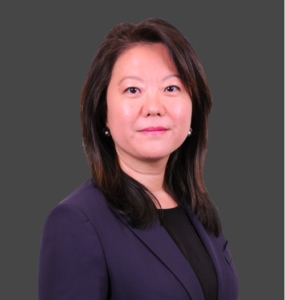Making an impact will be just as important as making an income is central to adopting a “Legacy-Driven mindset” and that becomes crucial to long-term success in both our business and personal lives.
In watching how people navigate the landscape of their business and personal lives, I believe that women have a better sense of how to adopt and implement this way of life because women always seem to be in charge of balancing the life and work dance—and like Ginger Rogers with Fred Astaire, they can also do it backwards.
Why a “Legacy-Driven Mindset” is Not a Strategy or Tactic
The “Legacy-Driven mindset” is deciding what is truly important in the entirety of your life—and then living it. Why is this crucial to long-term success in our working and personal lives? Thinking about long-term successes rather than short term fulfillment keeps you focused on your specified path during times of chaos and uncertainty. And because your actions are rooted in a much bigger picture of how you should live your life, you won’t be pulled willy-nilly by every capricious whim and wind that comes your way.
“Living Your Legacy”—In my writing and speaking to groups about my book, The Legacy Letters, I came to the realization one day that legacy was not the sum total of who and of what you left behind in your life but how you “walk your talk” or “live your legacy” in all your words and actions. This long-term outlook—this legacy-driven outlook—is what gives purpose to your priorities. Thoreau wrote: “Simplify, simplify, simplify.” I would rather it be: “Prioritize, prioritize, prioritize.”
The “Ginger Rogers” Syndrome—Why is it so important to prioritize in this life? Because we’ve come to believe that everything we do, all the time, is important. That if we could only answer the next e-mail, text the text message, race to the next meeting, buy the next new thing, go on the perfect vacation, dot every “i” perfectly and cross every “t” like precision, then we would win the race, become the perfect person, and get the gold star for doing the most things in a twenty-four period of time. And as so many professional women know the “Ginger Rogers” syndrome, they still can do it backwards. But this perfection is false prioritizing. It is just checking boxes. And when you reach the end of your life, are you happy that you checked so many boxes so well?
The Regret Test—When I speak to audiences about legacy-driven life, I ask them to take a simple test that I call “The Regret Test.” Imagine you’re ninety years old and now can look back on your life and find all the regrets you have. Imagine talking to yourself right now at the age your and say, “Why are you still at that “great” job making a ton of money and being totally miserable?” or “Why don’t you leave that idiot boyfriend and find someone who loves you, or really wants to have kids with you, or loves you being the CEO of your company?” or “Why don’t you go live in Colorado or France like you’ve always wanted?”
Then you continue the conversation: “I’m here to tell you as your ninety-year old self, you are going down a long path to unhappiness and ultimately will have more regrets than not. And I’m here to tell you that it really sucks to have more regrets at the end of your life when you could have easily decided not to have gone down the path of most regrets. You could have decided to live your life and not the life everyone else wanted you to live. Because, at the end of the day—or the end of your life—if you can’t say to yourself, I’ve done a good job of living well, then you really have blown it.”
Now that’s one powerful conversation to have with yourself.
Bio:
Carew Papritz is the 5-Time award-winning author of the inspirational book, The Legacy Letters, which was featured last month in INC.: 5 Gifts That Will Do Good Long After You Buy Them



 “When it comes to diversity and inclusion, we have to continually find many ways to talk about it openly, even if this involves having difficult conversations,because although it may feel challenging, the end result will be worth it for everyone“ states Sandra Bang, Chief Diversity and Talent Strategy Officer at Shearman & Sterling LLP.
“When it comes to diversity and inclusion, we have to continually find many ways to talk about it openly, even if this involves having difficult conversations,because although it may feel challenging, the end result will be worth it for everyone“ states Sandra Bang, Chief Diversity and Talent Strategy Officer at Shearman & Sterling LLP.